#mediaX2019 Conference: Digital Communities and the Augmented Human Experience
#mediaX2019 Conference
Digital Communities and the Augmented Human Experience
MacKenzie Room, Jen-Hsun Huang Engineering Center
April 25th 9:30am-4:30pm
People are social by nature and they engage in many types of communal interests. No longer defined by locale or physical presence, many communities are now virtual. People interact in multiple communities, that are nested or inter-connected in complex ways. Online communities have become mainstream for business, professional education, information, interests, and pleasures.
Whether physical or virtual, “community” implies both an individual perception and a collective sense of belonging, trust and mutual influence. The sense of a shared experience is fundamental to the human experience. People form and maintain communities to meet special needs, and communities have a significant personal impact on health well-being. They play an increasingly important role in the everyday life and in the platform economy. They have become vital to education, learning and the cultivation of human resources that fuel and sustain innovation.
Details:
MacKenzie Room, Jen-Hsun Huang Engineering Center
9:30am-4:30pm
Presenters
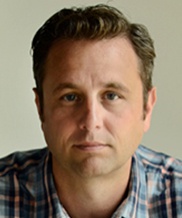
Jeff Hancock is founding director of the Stanford Social Media Lab and is a Professor in the Department of Communication at Stanford University. Professor Hancock and his group work on understanding psychological and interpersonal processes in social media. The team specializes in using computational linguistics and experiments to understand how the words we use can reveal psychological and social dynamics, such as deception and trust, emotional dynamics, intimacy and relationships, and social support. Recently Professor Hancock has begun work on understanding the mental models people have about algorithms in social media, as well as working on the ethical issues associated with computational social science. His research has been published in over 80 journal articles and conference proceedings and has been supported by funding from the U.S. National Science Foundation and the U.S. Department of Defense. His work on lying and technology has been frequently featured in the popular press, including the New York Times, CNN, NPR, CBS and the BBC.
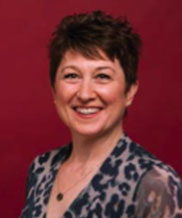
As a Fortune 500 executive, operator with extensive P&L management experience, corporate intrapreneur, and consultant to senior leaders from startups to the C-suite, Lara Lee has spent over 30 years pioneering new territory and leading transformational change. Named a “Master of Innovation” by BusinessWeek in 2006, she combines techniques from strategy, design, and the social sciences to take brands into new markets, capitalize on untapped potential and create experiences worth sharing. Over 15 years at Harley-Davidson she developed a rider training business to fill the customer pipeline, built a museum to serve as a self-funding marketing machine, pioneered online community engagement and direct-to-consumer retailing, and turned cost centers into money-makers at the $6 billion company. She was Chief Innovation and Operating Officer at Continuum Innovation, SVP of Customer Experience Design at Lowe’s Home Improvement, and from 2016-2018 led a customer-centric transformation as the President of $600M Orchard Supply Hardware. Lara now runs Creative Renewal, a consulting consortium that helps companies create sustainable growth strategies and the cultures that make them stick.
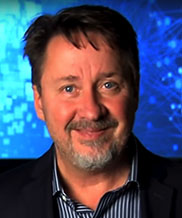
Michael Richey is the Chief Learning Scientist, Associate Technical Fellow at The Boeing Company. His research portfolio is aligned to his corporate roles and responsibilities as a Boeing Associate Technical Fellow through: a) supporting the company’s business strategies by ensuring technical excellence across the enterprise in our people, technologies, processes, tools, and products, b) expand the company technical skills and performance by improving the acquisition, retention, knowledge, and utilization of our technical workforce for business success and c) participate in representing the company’s technology interests to the outside world customers, the general public, academia, and government. His current research projects include engineering education, socio-technical systems, university online STEM programs and educational data analytics. This multi-disciplinary research brings together expertise in the Learning Sciences, Complexity Science and Social Networking together with data in ways that can create an integrated understanding of system structure and behavior.
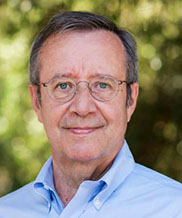
Toomas Ilves is the former president of Estonia (2006-2016). Ilves is currently a distinguished visiting fellow at the Hoover Institution at Stanford University. In 2018-19, he is a Berggruen fellow at CASBS. His primary research focus and project at CASBS is on regulatory and technical solutions necessary to ensure the continued functioning of liberal democracy in the digital era. Since leading Estonia on its road to becoming a leader in e-governance beginning in the early 1990s, Ilves has focused on democracy and digitization for some 25 years. In 2016, Ilves began co-chairing a WEF working group on blockchain technology. In 2017 Ilves became an advisory council member of German Marshall Fund’s Alliance for Securing Democracy. He is a member of the advisory boards of the Munich Security Conference, the NATO Center of Excellence for Cyber Security, the German Marshal Fund’s Alliance for Securing Democracy, and the Alliance for Democracy’s Transatlantic Commission on Election Integrity. Ilves also sits on the advisory board of the Oxford University Centre for Technology and Global Affairs.
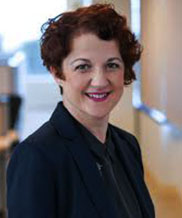
Ioana Badea is Director of Strategic Pathfinding at Facebook. Previously she led the Global Insights & Analytics team at Intel, acting as a partner to Intel’s strategy office, global marketing, and business units. The charter of her team was to provide vital support for market insight and strategic foresight as a foundation to build brand relevance and accelerate Intel’s growth. Her team advocated the voice of the market throughout the product development life cycle, including various initiatives to detect global market trends, understand end-user needs, monitor changes in people attitudes and behaviours, and turning the learning into actionable recommendations. In her 16 years with Intel, Ioana has acted as a champion of market-driven insights to inform strategic business decisions in marketing, long lead technology and specific form factor innovation. Prior to joining Intel, she held a variety of market research roles on the client and supplier side.
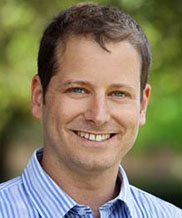
Amir Goldberg is an Associate Professor of Organizational Behavior at the Stanford Graduate School of Business and Associate Professor of Sociology (by courtesy), School of Humanities and Sciences at Stanford University. Goldberg’s research lies at the intersection of cultural sociology, data science and organization studies. He is interested in understanding how social meanings emerge and solidify through social interaction, and what role network structures play in this process. The co-director of the computational culture lab, Amir uses and develops computationally intensive network- and language-based methods to study how new cultural categories take form as people and organizational actors interact. An Associate Professor of Organizational Behavior in Stanford’s Graduate School of Business, his research projects all share an overarching theme: the desire to understand the social mechanisms that underlie how people construct meaning, and consequently pursue action.
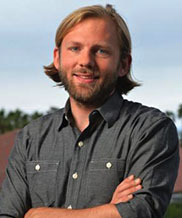
Johan Ugander is an Assistant Professor in Management Science & Engineering (MS&E) and David Morgenthaler II Faculty Fellow School of Engineering at Stanford University. His research develops algorithmic and statistical frameworks for analyzing social networks, social systems, and other large-scale data-rich contexts. He's particularly interested in the challenges of causal inference and experimentation in these complex domains. Johan's work commonly falls at the intersections of machine learning, probability theory, statistics, optimization, graph theory, and algorithm design. Within MS&E he's a member of the Social Algorithms Lab (SOAL). At Stanford Johna is also affiliated with the Institute for Computational & Mathematical Engineering (ICME) and the Center for Computational Social Science.
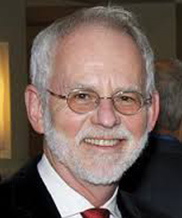
Roy Pea is the David Jacks Professor of Education and the Learning Sciences at Stanford University, Co-Founder and Faculty Director of the H-STAR Institute, Director of the PhD Program in Learning Sciences and Technology Design, and Professor, Computer Science (Courtesy). Since 1981, Dr. Pea has been exploring how information technologies can support and advance the scientific understanding and practices of learning and teaching, with particular focus on topics in science, mathematics, and technology education and their associated symbolic and communicative interchanges that are integral to learning. He has published widely on K-12 learning and education, especially in science, math and technology, fostered by advanced technologies including scientific visualization, on-line communities, digital video collaboratories and mobile computers. His current work is examining how informal and formal learning can be better understood and connected.
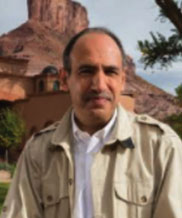
Richard Sergay is an award-winning veteran network television journalist and senior media executive who spent much of his career at ABC News. He reported on major domestic and international stories for World News, Nightline and Good Morning America and ABC Radio. Richard completed a six-year assignment as Bureau Chief and Correspondent based in South Africa covering the end of White rule and Apartheid, as well as the release of Nelson Mandela from prison and the ensuing peace negotiations. After the South Africa assignment, Richard began a new beat for ABC News – the first for any major network -- focused on the digital revolution unfolding in the U.S. Richard will be showing a his movie Citizenship in a Networked Age. This feature embraces the positive potential of technology while also addressing its deep implications for society. Drawing on the best of scientific insight and spiritual wisdom, it aims to promote promoting human flourishing on a global scale.
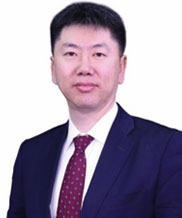
Richard Tong is the Chief Architect of Squirrel AI Learning by Yixue Education Group. He is an experienced ed-tech technologist, executive and entrepreneur. He was the Head of Implementation, Greater China Region for Knewton, and Director of Solution Architecture for Amplify Education. He also served as CTO of Phoenix New Media (NYSE:FENG). He has been heavily involved in education technology standardization in the last 8 years. He is a current member of the IEEE AIS (Adaptive Instructional Systems) Standard working group and chair for the 2247.2 Interoperability Subgroup, a member of the IEEE ICICLE (IC Industry Consortium on Learning Engineering) and IEEE FML (Federated Machine Learning) working group. He was a member of the School Interoperability Framework Association (SIFA) Technology Board, and co-chair of the Assessment Group and IDM Group. He also served as a member of the Assessment Interoperability Framework working group for Common Education Data Standard (CEDS), and IMS Global Caliper standard workgroup and Computer Adaptive Testing workgroup, etc.
Ms. Meryem Inabi is Chargé de Mission to the General Secretary at Mohammed VI Polytechnic University. In this capacity, she manages the oversight, development, liaison and implementation of UM6P’s international academic and research partnerships worldwide with the focus on supporting the development of new programs and projects at the Pole of Science and Technology and expediting the contributions of UM6P’s General Secretary’s Office to the various programs and projects during all their development phases. Meryem works with UM6P key university Management and Administrators and closely works also with graduate students , faculty and international consultants in various domains of expertise to advance various UM6P initiatives within UM6P and overseas.